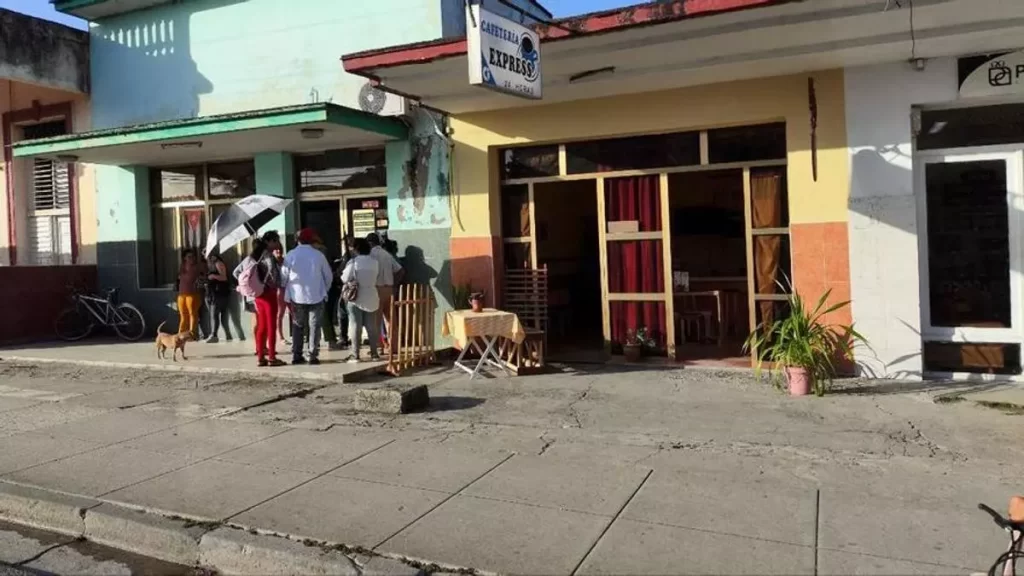
![]() 14ymedio, Madrid, February 26, 2024 — A total of 203 workers of Commerce and Gastronomy companies have been tried for crimes related to corruption, including embezzlement, bribery, falsification of documents, theft and damage of documents or other objects in official custody and violation of official seals. The sanctions imposed cover a wide range of years, from two to 22, depending on the severity.
14ymedio, Madrid, February 26, 2024 — A total of 203 workers of Commerce and Gastronomy companies have been tried for crimes related to corruption, including embezzlement, bribery, falsification of documents, theft and damage of documents or other objects in official custody and violation of official seals. The sanctions imposed cover a wide range of years, from two to 22, depending on the severity.
The data appear at the end of a long article published this Monday in the official newspaper Granma, which is preceded by an extensive moral reproach against all those involved, along with their superiors for negligence, superficiality, and lack of transparency, supervision and ethics. In total, 383 disciplinary measures have been applied for administrative responsibilities, 95% of them firings – “final demotions from the position (9.6%), final separations from the entity (42%) and final separations from the sector (44%),” says the article.
The balance is huge, taking into account that it is the result of audits carried out only in the provincial companies of Food Processing, Gastronomy of Havana and its basic units of La Lisa, Playa, Plaza de la Revolución, Habana del Este, Cerro, San Miguel del Padrón, Centro Habana; and of those subordinate to the Food Business Group, Wholesaler to the Parallel Market and Cigars, Cigarettes and Matches.
In total, 383 disciplinary measures have been applied for administrative responsibilities, 95% dismissals
The article adds that two audits have been concluded “recently” in the Provincial Commerce Company of Havana and its subsidiary of the municipality of Plaza de la Revolución, with results that, although not detailed, are equally catastrophic since “they show the repetition of the same ways of operating, which allowed the appropriation of large sums of money by the commercial units subordinate to the basic business units of Puentes Grandes, Rampa and El Vedado, through the falsification of bank slips not issued by the bank to mask the theft of financial resources from the sales, which include those corresponding to the marketing of products released at differentiated prices to the population, which the Government allocated to complement, in part, the regulated family basket.”
In this case, also, it is expected that there will be administrative and criminal sanctions.
The article also explains the way of operating of some of the workers involved, from the aforementioned falsification of bank documents to declaring false sales to meet the targets of the plans but without being able to deposit the corresponding money, because they balanced the accounts “through totally arbitrary accounting adjustments.”
The article also highlights the serious inconveniences generated by these cases of corruption because, in addition to economic appropriation, they occur in an area where there are great deficiencies. “That phenomenon created shortages in consumer offerings and undue enrichment,” it reproaches.
According to Granma, the situation reveals “the superficiality and lack of investigations in the selection process of those who occupy key positions in management,” although it is well known that there is a shortage of workers on the Island due to an exodus, aggravated since 2021, reaching 4% of the population according to some calculations.
The official press claims the role of the officers and officials who have intervened in the detection of the problem and considers that a “resolved confrontation” has been made, although it is difficult to believe, due to the high number of people involved, that these events have gone unnoticed during the long period in which, presumably, they have occurred.
The article considers that there is a visible “lack of effectiveness of the measures contained in the Risk Prevention Plan” and that the controls are not applied properly
The article considers that there is a visible “lack of effectiveness of the measures contained in the Risk Prevention Plan” and that the controls are not applied properly. In addition, it attributes the beginning of the audits to the complaints of the population, which indicates an evident lack of internal surveillance, if not connivance.
Miguel Díaz-Canel asked for “zero tolerance” of corruption last week in a meeting with Cuban prosecutors, whom he urged to face these facts that “delay social development, growth and economic development.” “Corruption can be so devastating that it can lead a country to poverty, moral poverty and material poverty. Corruption can destroy a country,” he said.
His words came a few days after the theft of at least 133 tons of chicken from a state company.
This Monday’s Granma article does not skimp on scolding and speaks of an emerging “loss of ethical and moral values of managers, specialists and workers involved, who appropriated resources from the people to obtain personal benefits or for third parties, on the basis of deception and disloyalty.”
Translated by Regina Anavy
____________
COLLABORATE WITH OUR WORK: The 14ymedio team is committed to practicing serious journalism that reflects Cuba’s reality in all its depth. Thank you for joining us on this long journey. We invite you to continue supporting us by becoming a member of 14ymedio now. Together we can continue transforming journalism in Cuba.
